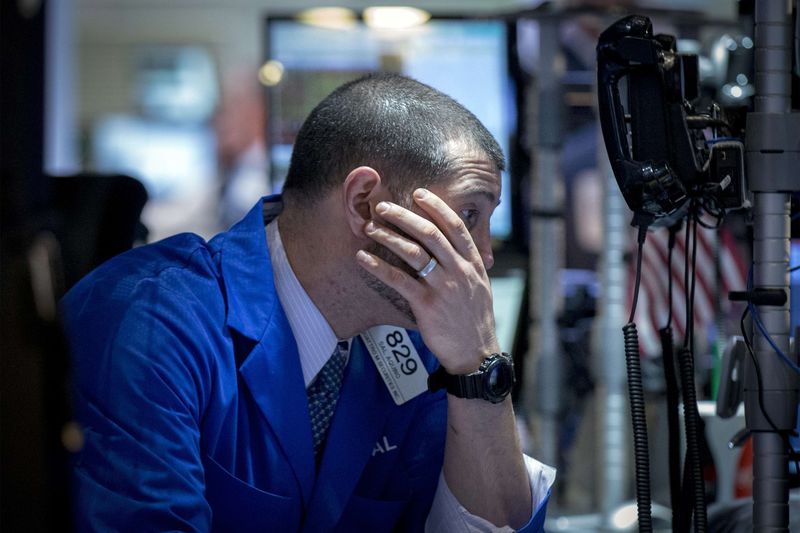* Asian stock markets: https://tmsnrt.rs/2zpUAr4
* Asian shares rise in cautious trade, China leads
* Concerns over growing coronavirus cases globally
* Eyes on fiscal support package talks in EU, U.S.
By Swati Pandey and Sumeet Chatterjee
SYDNEY, July 20 (Reuters) - Asian shares posted gains on Monday and the euro rose to four-month highs, as EU leaders appeared to make some headway after three days of haggling on a plan to revive their economies, even as coronavirus cases increased in many countries.
Dutch Prime Minister Mark Rutte said EU leaders were making progress but warned discussions could still fall apart, while summit chairman Charles Michel urged them to make one last push on "mission impossible". markets were set to open higher with pan-region EuroSTOXX 50 futures STXEc1 , German DAX futures FDXc1 , and FTSE futures FFIc1 all trading up 0.2%, reversing earlier losses during Asia trade.
In the United States, E-mini futures for the S&P 500 ESc1 were down 0.5%.
"The commitment by EU leaders in extending talks, and reports of further talks if no agreement is reached today, shows the desire to have the recovery fund in some form," said NAB analyst Tapas Strickland.
However, it was likely to be "a very long and winding road" before a deal is reached, he added.
EU leaders are at odds over how to carve up a vast recovery fund designed to help haul Europe out of its deepest recession since World War Two, and what strings to attach for countries it would benefit.
Diplomats said it was possible that they would abandon the summit and try again for an agreement next month.
The euro EUR= rose above $1.1452 to its highest levels since March.
"This is what we're so used to from Europe ... it was always going to be a very controversial programme where they needed to be seen defending the interests of the individual sovereigns. Ultimately there will be a deal and the market knows that," said Chris Weston, head of research at Pepperstone in Melbourne.
In Asia, MSCI's broadest index of Asia-Pacific shares outside Japan .MIAPJ0000PUS rose 0.3%, reversing loses earlier in the day, with Chinese markets rising more than 2%.
China stocks jumped 2.5%, led by financial firms, after regulators moved to bolster the market by lifting the equity investment cap for insurers and encouraging mergers and acquisitions among brokerages and mutual fund houses.
Australia's S&P/ASX 200 index .AXJO dropped 0.5% after authorities warned that a surge in COVID-19 cases in the country's second most populous state could take weeks to tame. than 14 million people have been infected by the novel coronavirus globally and nearly 602,000 have died, according to a Reuters tally. Korea's KOSPI .KS11 pared gains to fall 0.1%, while
Japan's Nikkei .N225 was also down 0.1% after data showed the country's exports suffered a double-digit decline for the fourth month in a row in June. the United States, Congress is set to begin debating a new aid package this week, as several states in the country's South and West implement fresh lockdown measures to curb the virus.
The virus has claimed over 140,000 U.S. lives since the pandemic started, and Florida, California, Texas and other southern and western states shatter records for new cases every day. currencies, the dollar climbed 0.3% against the Japanese yen JPY= to 107.28. Sterling fell to $1.2520. The risk-sensitive Australian dollar AUD=D3 was down 0.1% at $0.6989.
In commodities, spot gold XAU= eased a tad to $1,807.6 an ounce to hover near a nine-year top.
Oil prices fell, unnerved by the prospect that a recovery in fuel demand could be derailed by rising the COVID-19 cases. U.S. crude CLc1 and Brent LCOc1 were both down 25 cents to $40.34 per barrel and $42.89 per barrel, respectively. O/R
Prices for copper CMCU3 , a barometer of economic growth, fell on Monday after data showed rising inventories in Chinese warehouses and on concern the climbing coronavirus cases threaten a sustainable global recovery. Asia stock markets
https://tmsnrt.rs/2zpUAr4 Asia-Pacific valuations
https://tmsnrt.rs/2Dr2BQA
^^^^^^^^^^^^^^^^^^^^^^^^^^^^^^^^^^^^^^^^^^^^^^^^^^^^^^^^^^^> (Editing by Jacqueline Wong and Richard Pullin)
